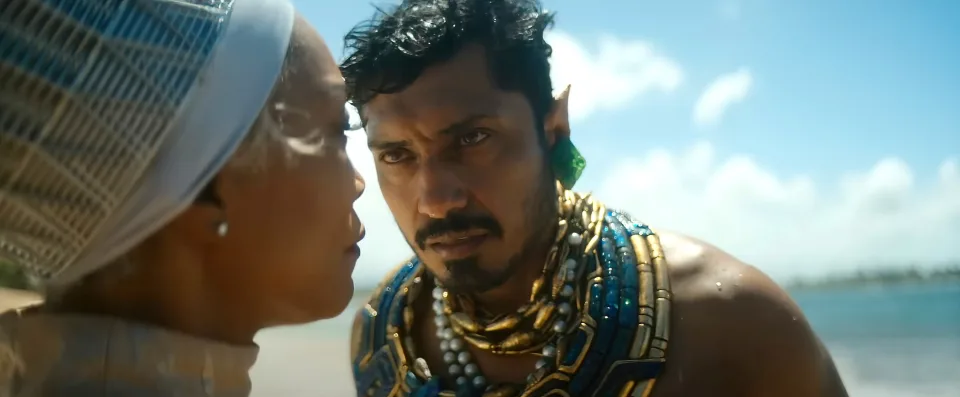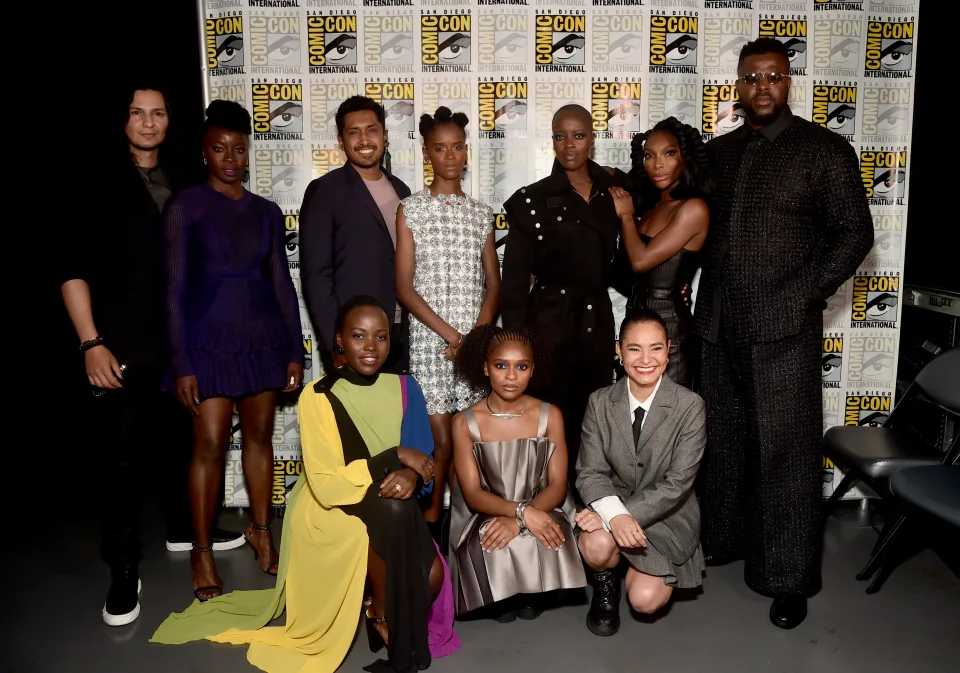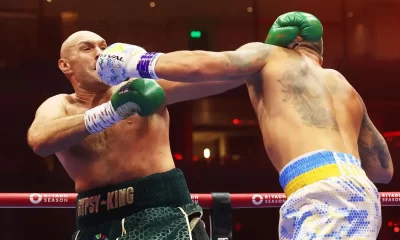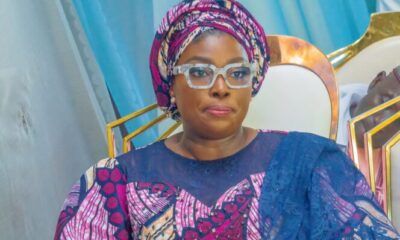Education
‘Wakanda Forever’ cast on how film explores shared experiences of Black and Latinx people…

Black Panther still stands as the Marvel Cinematic Universe’s most political movie, with the 2018 Best Picture Oscar nominee not only featuring a predominantly Black cast but also exploring the complexities of what it means to be African (as represented by its hero, Chadwick Boseman’s T’Challa) versus African American (via the worldview of its antagonist, Michael B. Jordan’s Killmonger).
So it stands to reason that co-writers Ryan Coogler and Joe Robert Cole have infused the new sequel, Black Panther: Wakanda Forever, with similar real-world cultural commentary.
As T’Challa’s mother Ramonda (Angela Bassett), sister Shuri (Letitia Wright) and the residents of Wakanda mourn the death of their king (a seismic plot change rewritten into the script after the death of Boseman in 2020), they’re also confronted by the mer-people of Talokan, an underwater civilization that, like Wakanda, has been kept hidden from the rest of the world. Ruled by the 500-year-old Namor (Tenoch Huerta), the Talokan angrily emerge from the depths of their Atlantis-like kingdom when the U.S. government begins mining the sea for Vibranium. The precious element is the Talokan’s most prized resource, too — another thing they share in common with Wakanda.
The Talokan, based on ancient Mayan and Mesoamerican civilizations and cast with all Latinx actors, were forced underwater when their land was invaded by colonizers. (The African-based Wakanda, per Marvel mythology, managed to be avoid colonization by hiding itself from the world.) It all plays into Wakanda Forever’s larger theme in which Coogler and company explore the shared experiences of Black, Latinx and indigenous people across the world. In many ways, the film’s budding rivals — Shuri and Namor — are the new T’Challa and Killmonger.
“The things that our cultures have in common, I think it’s been much-discussed, and much-written about,” Coogler told us. “What transpired on the content of Africa, if you think about what transpired in the Americas, you’ll see similarities. … But in this movie they both just kind of want to be left alone.”
“Especially if you contrast Wakanda, which had never been colonized, with these Talokan who fled colonization, there’s a conversation about indigenous people and their experiences, which I think is really interesting,” says producer Nate Moore. “Because it is a shared experience. And its an unfortunately globally shared experience by a lot of people. And I think the conversation Namor is having with Wakanda is, ‘Hey, here’s why I’m so intent on protecting my people. Because the only reason we live where we live is because we were fleeing this thing. That probably could happen again, and could happen to you.’
“And I think that makes it timely. I think maybe there’s a feeling that colonization was a thing of the past, but it’s still happening.”

Says Lupita Nyong’o, the Mexican-born, Kenya-raised actress who plays Nakia: “It draws a correlation of how distinct the experiences are, but also how similar. Our wounds are so similar. And we see this in this story. Talokan echoes Wakanda, as much as the Latinx experience can echo the Black experience. And I just love how we go head-to-head in this film. And at the end of the day, it’s, ‘OK, where is our point of truce? When do we see ourselves in the mirror?’”
Huerta echoes similar sentiments, citing the events of the Spanish conquest of the Aztec Empire, also known as the Conquest of Mexico, in the early 1500s. “In the end, we share the same wounds,” he says. “This catastrophe, this holocaust that happened to our people, our ancestors, it was almost at the same time [of the Atlantic slave trade]. Now, years later, we are trying to [reconcile] with ourselves, and with the other people. So I think this movie and this kind of narrative helps to create this union and bondage among all of us. But yeah, we definitely share the same kind of story.”
With its supporting cast, Wakanda Forever also becomes the first Marvel movie to prominently feature multiple Latinx actors.
“A big part of Black Panther’s legacy is representation. Knocking down doors, and giving other cultures visibility,” says Alex Livinalli, who plays Attuma and is the first Venezuelan actor to enter the MCU.
The Mexico-born, Veracruz-raised Mabel Cadena, who co-stars as Namora, didn’t even speak English when she was cast in the film.
“Thanks to the first Black Panther movie and its cast, we have the opportunity to represent Latin communities,” she says. “Faces like [mine], with this color. With this beauty. With this amazing diversity… It’s amazing to have all these cultures in our movie. So I’m very proud about this opportunity.”


 Sports15 hours ago
Sports15 hours agoOleksandr Usyk defeats Tyson Fury to tetain heavyweight title

 Politics15 hours ago
Politics15 hours agoWe Will Bury PDP, Ibori’s Daughter Blows Hot

 News15 hours ago
News15 hours agoNigerian Emergency Agency NEMA Puts All Offices On Alert Over Fatal Stampedes

 Sports15 hours ago
Sports15 hours agoCAF Made Me Believe I Won – Achraf Hakimi

 Top Stories15 hours ago
Top Stories15 hours agoEmefiele: EFCC secures final forfeiture of 1.925 hectares of landed property linked to former CBN Governor
- News3 hours ago
NIGERIAN BREWERIES PARTNERS OZA CARNIVAL








